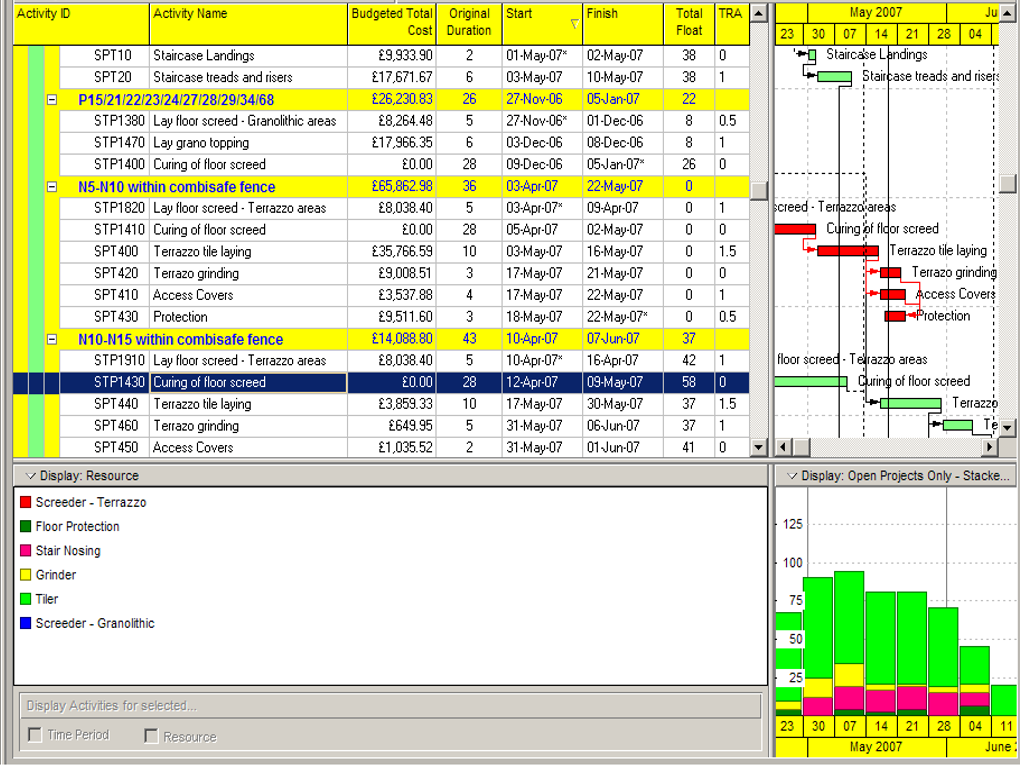

The Engineering and Construction Contract (ECC) is an agreement between the Client and the Contractor as the named Parties. The contract goes on to identify the two specific roles that can act on behalf of the Client. The contract introduces the Project Manager and the Supervisor, who both have specific roles and responsibilities to carry out in accordance with the contract. A previous CECA bulletin (no.21) has detailed the role and duties of the Supervisor. This bulletin will summarise the equivalent elements for the Project Manager. A Contractor should also consider that they would need to carry out the equivalent role of the Project Manager in their Engineering and Construction Subcontract (ECS) with their Subcontractors, although they are referred to in those contracts simply as “the Contractor” rather than a “Project Manager”.
The scope of the ECC Project Manager is much broader in terms of the actions to be carried compared to that of the Supervisor. The associated clauses allocated to either the “Project Manager” or “Supervisor” that are listed in the contract index demonstrate this reality. Looking under the title of “Project Manager” in the index of the ECC contract will give an indication of the extent of the duties for that role. There are over 700 separate references to a Project Manager across more than 100 separate clauses of an NEC4 ECC contract.
Obligation to act “impartially”. This is not stated specifically in the contract but clearly implied, and in any event, you would hope to be an obvious practical requirement. The very first contract clause 10.1 requires the Project Manager to act as stated in the contract, i.e. do what the contract says. If this is not followed the Client could be liable for disputes and formal adjudications, for which if the Project Manager was found not to be correct, could cost the Client a lot of money (and time in having to manage the dispute). If a Project Manager assessed and implemented a compensation event at a fraction of the Contractor’s quotation, this could be overturned by an adjudicator. In that eventuality, not only would the Client have to pay the difference but they would also be liable for all of the adjudicator’s costs.

NEC4 Project Manager is now gender neutral. Welcome to the 21stcentury NEC contracts! Previously under NEC3 the Project Manager was referred to as he/his in numerous contractual clauses. There was then a clause in NEC3 section 12 that stated “when the contract refers to words in the masculine also mean in the feminine and neuter”. However, NEC4 has recognised that it did not need to be written that way and is now gender neutral and only now refers to its/their/they in reference to the Project Manager. However, we have seen numerous Client Z clauses where they continue to use he/his in their bespoke changes. This is an example of the lack of detail that can be demonstrated in poorly drafted amendments.
What are the main duties of a Project Manager? This bulletin will consider some of the more important clauses and processes the Project Manager would need to get involved with:
Acceptances of submissions from Contractor. There are numerous elements within the contract that require acceptance of a submission from the Contractor. The Project Manager is obliged to respond to any such submission within the timescale stated within the contract, or for any other submission (without a stated timescale) within the period for reply (stated in contract data 1). If not accepting a submission, the Project Manager is obliged under clause 13.4 to state the reasons why, in sufficient detail that allows the Contractor to correct the submission, i.e. not just high level reasons for rejection.
Clause 14.1 also clarifies that acceptance by the Project Manager does not change the Contractor’s liability to “Provide the Work or liability for its design”. For example, if a Contractor submitted a design which was accepted including a material that was not compliant to the original Scope, if that material had to be subsequently changed, that would still be the Contractor’s liability. Without this clause, a Project Manager could be worried about accepting anything for fear of being liable for missing something the Contractor should have complied with.

The main elements within the contract that could be issued for acceptance would be
- design,
- programme,
- subcontractors and subcontractor contract conditions,
- compensation event quotations,
- revised activity schedule (for option A only),
- additional Working Areas,
- Contractor proposals,
- quality management system,
- whole life cost quotations,
- insurance policies,
- quotations to not accept a defect,
- change in key person,
- acceleration quotations.
No response would not lead to an instant deemed acceptance but would be a compensation event under clause 60.1(6). Any impact that the non-response has in these instances would be recoverable by the Contractor as part of the resultant compensation event quotation for cost and time. There are two elements in the contract (programme and compensation events) where if there was no response by the Project Manager the Contractor can notify the lack of response. If there was a further period of non-response (one week for programme, two weeks for compensation events) then the associated programme or compensation event would be “deemed accepted” at that point. This is just to prevent a Project Manager from not responding, leaving the Contractor unsure of their liability for those elements.
Project Manager Instructions: There are various elements the Project Manager may need to instruct, and clause 27.3 clarifies that the Contractor “obeys an instruction given by the Project Manager in accordance with the contract”. The only reason the Contractor could refuse an instruction is for something that was illegal or impossible (or outside of their competencies). Any instruction that is a change to the Scope or an instruction to stop work (unless the fault of the Contractor) would be a compensation event. Numerous instructions could be given that would not give rise to a compensation event, for example an instruction for the Contractor to comply with their own quality plan or an instruction to stop someone working unsafely. Any such instructions must be in writing (clause 13.1) and issued in the communication system if one is identified within the Scope (clause 13.2). They should also be separate from other forms of communication (clause 13.7).
Compensation events: The Project Manager will be heavily involved in the whole compensation event process form start to finish. There are numerous compensation events that the Project Manager is obliged to notify, for example if they have instructed a change to the Scope. A majority of the compensation events however will be notified by the Contractor e.g. lack of access or experiencing unforeseen physical conditions. If the Contractor notifies the compensation event, the Project Manager would have to accept or not accept it, and if accepted instruct a quotation. Once the Contractor submits their quotation, the Project Manager would have to reply to the quotation within two weeks with either acceptance or non-acceptance. If not accepting, they instruct the Contractor to resubmit a quotation or make the statement they will assess it themselves. If the Contractor does not submit a quotation within the time permitted (3 weeks), then the Project Manager should make their own assessment (clause 64.1). The conclusion of the whole compensation event process is the Project Manager ‘implementing’ the event, confirming the cost and time impact upon the Prices and the Completion Date (and/or Key Dates). As already highlighted within this bulletin, it is essential the Project Manager makes this assessment objectively and in accordance with the rules of the contract as any formal dispute process could be very costly in terms of cost, time and relationships for the Client if proven incorrect.

Early Warnings: The Project Manager is the key person in administering the early warning process. The Project Manager prepares the first Early Warning Register within one week of the starting date and instructs the Contractor to attend the first early warning meeting within two weeks of the starting date. The Project Manager as well as the Contractor should notify early warnings as soon as they become aware of them, and the Project Manager should then lead the way in the discussions for potential actions to be taken at the resultant early warning meeting. It is then the Project Manager’s responsibility to update the Early Warning Register with the latest agreed actions for those items still open and reissue the updated Early Warning Register within one week of holding the meeting. The Project Manager should be actively encouraging the early warning process as a proactive tool to avoid or at least minimise impact of potential issues.
Key Dates: For any Key Dates identified in Contract Data 1, the Project Manager may instruct a change to a Key Date, of which any impact will be considered through a compensation event (60.1(4)). If the Contractor does not meet the Key Date (for a reason which is their own risk) then the Project Manager will assess the additional cost to the Client within four weeks of the date when the Contractor does eventually achieve the Key Date. (See CECA bulletin 2 for more details on Key Dates.)
Resolution of ambiguities and illegal/impossible requirements: Under clause 17.1 the Project Manager should notify as soon as they become aware of an ambiguity/inconsistency in or between documents forming the contract. For any such matters the Contractor notifies, the Project Manager should give an instruction on how that matter should be resolved. This will be a compensation event as it is an instruction changing the Scope and will be resolved in favour of the Party that did not provide the Scope (clause 63.10). There is a similar process for dealing with illegal or impossible requirements (clause 17.2).

Programme: As already mentioned above, the Project Manager needs to accept or not accept a programme issued for acceptance. These will be regularly revised and reissued for acceptance at no longer than the interval stated in contract data (typically every four weeks or monthly). Clause 31.3 gives the four clear reasons that a Project Manager can choose not to accept a programme. As mentioned already, if they did not respond at all then the Contractor can notify that failure, and after a further one week of non-response the issued programme would at that point become the deemed accepted programme. It is in both Parties interest to have a regular Accepted Programme (see CECA bulletin no 6) and the Project Manager should take a proactive approach to ensure this process is encouraged, particularly as it will aid the assessment of compensation events less subjectively if the programme has been recently accepted. The Project Manager can also instruct an acceleration quotation if both Parties are prepared to consider one, and the Project Manager would choose to accept or not accept the Contractor’s quotation (and they are not able to make their own assessment).
Payments: The Project Manager assesses the amount due at each assessment date (clause 50.1) and certifies payment within one week of each assessment period (clause 51.1) including details of how the amount due has been assessed. For options C-F, the Project Manager will also need to identify any elements they consider should be a disallowed cost not to be included as part of the amount due. Section 53 also states in detail how the Project Manager carries out the final assessment of the amount due, to in effect, “close” the contract.
Summary: The Project Manager plays the key role in administering the contract on behalf of the Client. As well as having clearly defined actions and requirement to act/respond within defined timescales, they also have a responsibility to create a positive culture and environment to ensure all Parties follow the contractual rules and processes. It is essential that the Project Manager makes decisions in accordance with the rules of the contract to protect the Client’s interests and to enable a successful project.

